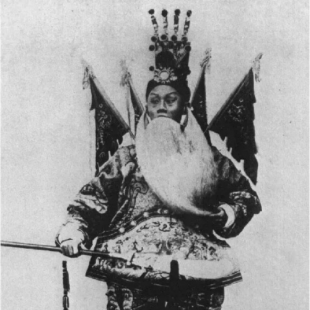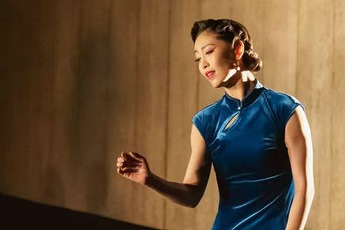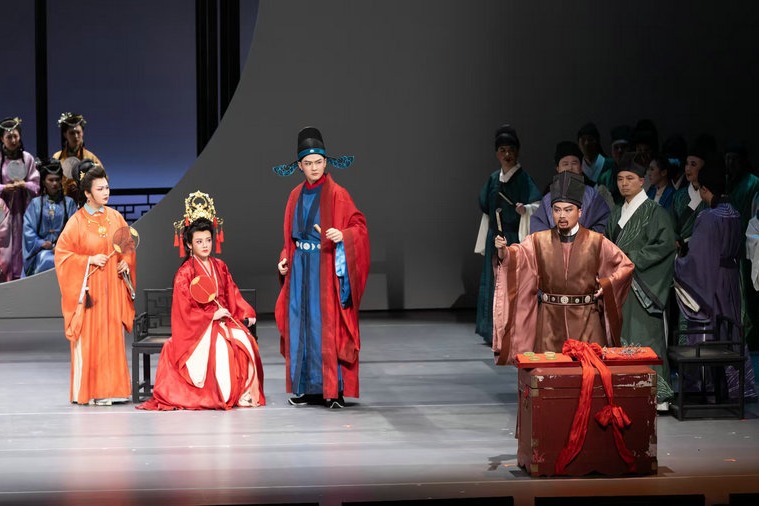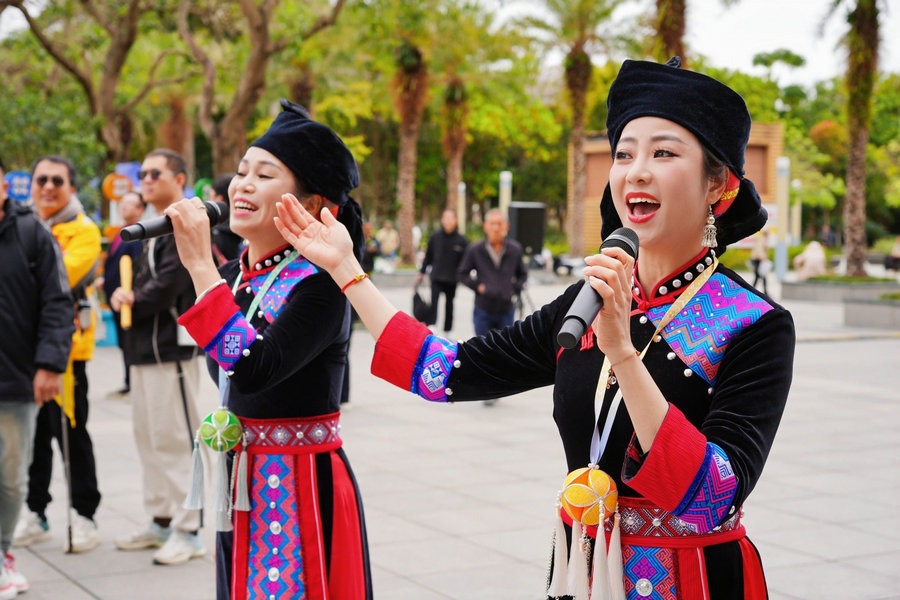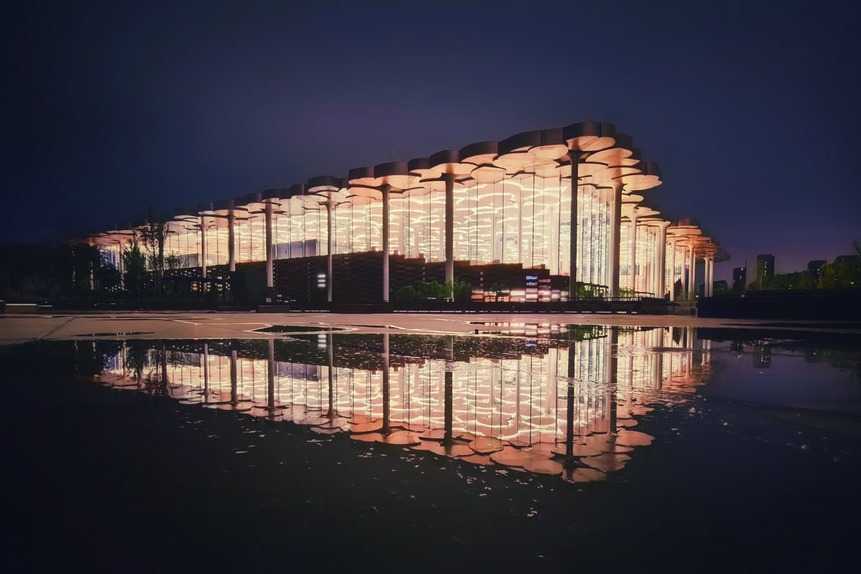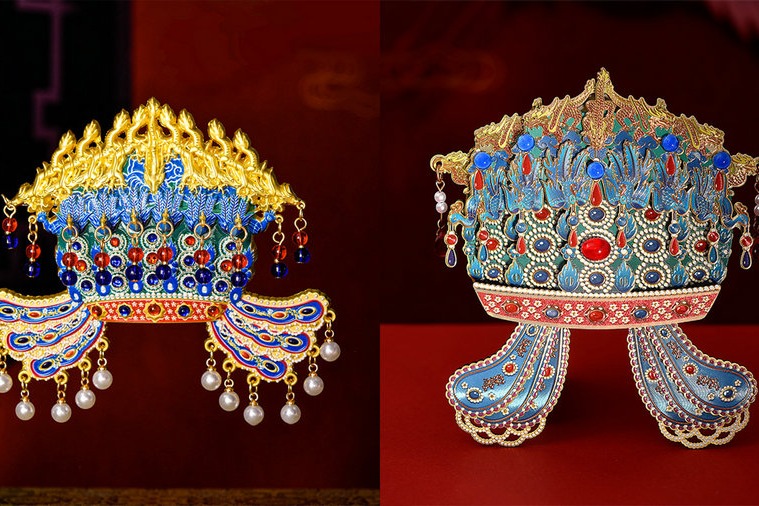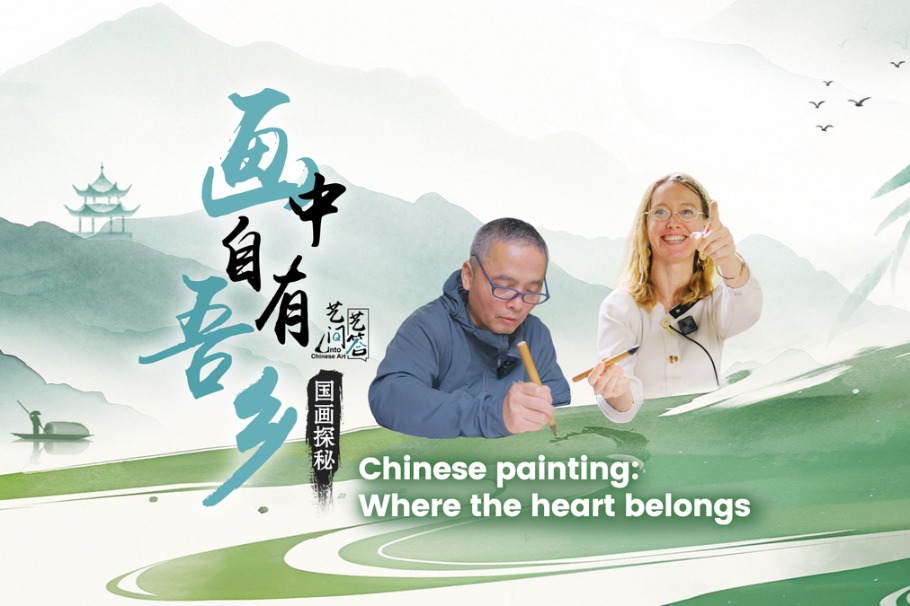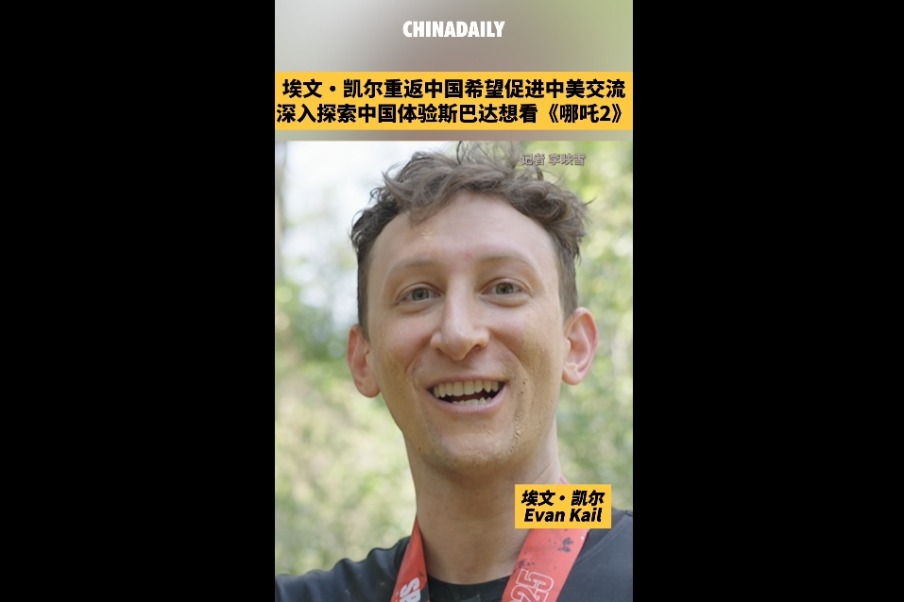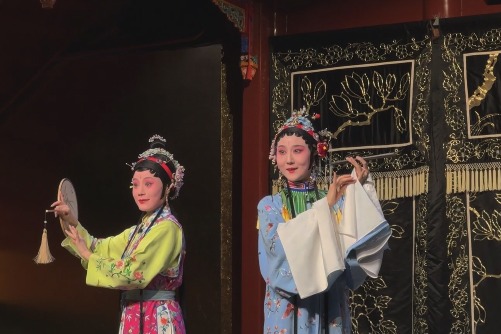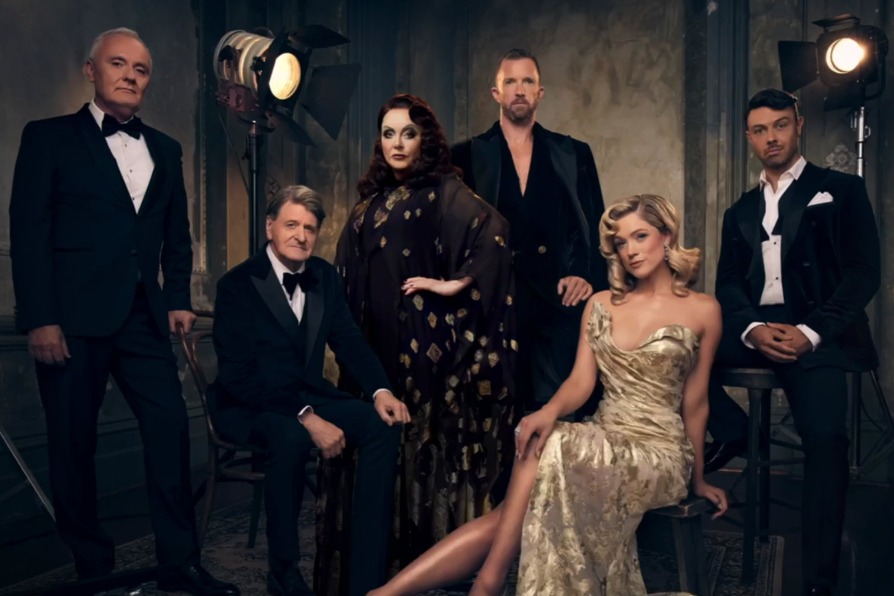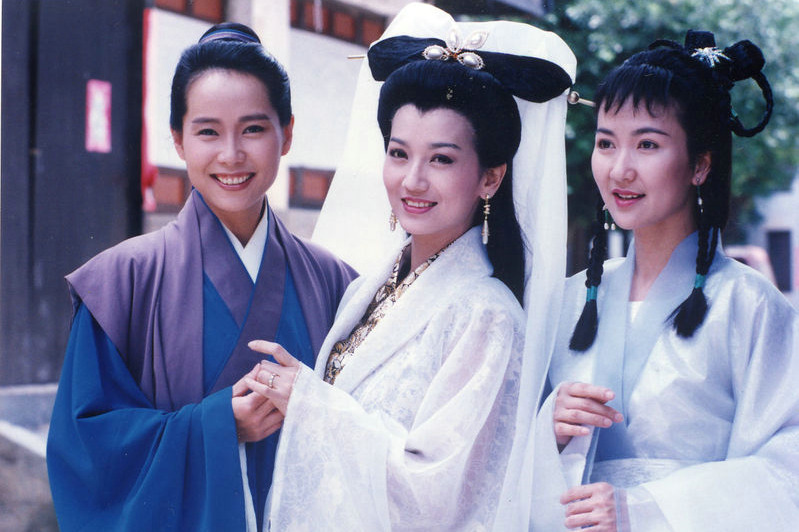History, cuisine and red carpets: An immersive festival experience

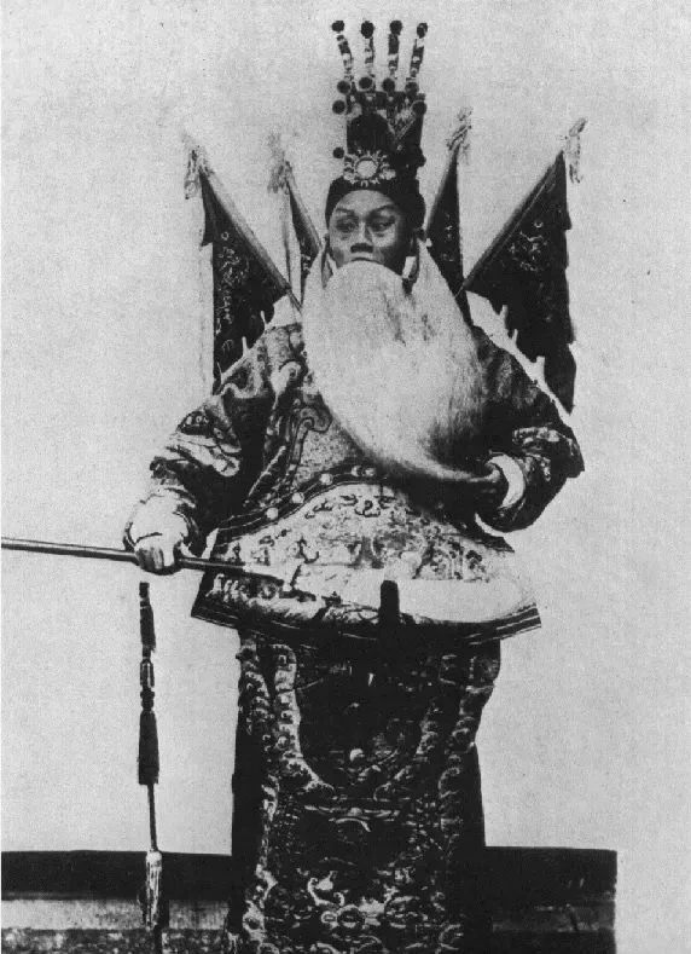
The first stop of the Beijing Film & Life Festival is the Daguanlou Cinema in Dashilar, a historic landmark closely tied to early Chinese cinema.
In 1905, the Dahengxuan Teahouse was officially renamed the Daguanlou Cinema Park, ushering in a long association with Chinese film history. That same year, The Battle of Dingjunshan - China's first-ever film - was screened here.
In 1907, the Daguanlou Cinema Park was renamed the Daguanlou Theater. At the time, it not only screened films but also sold tea, snacks, tonics, and even coffee. During screenings and intermissions, waiters shuttled through the audience with tea trays, hawking refreshments.
For 120 years, the flickering of film projectors has never stopped here. The vibrant local culture of southern Beijing has permeated the silver screen, and cinema has remained an integral part of the city's cultural identity.
This historic building, built in the late Qing Dynasty (1644-1911), is both a cinema and a living museum of Chinese cinema. Walking through the “Chinese Film History Gallery” at Daguanlou Cinema, which is filled with valuable historical artifacts and archival materials, is like traveling through Chinese cinema's 120-year history.
During the film festival, a special screening of Beyond The Clouds will be held with the main creators attending afterwards. Classic films celebrating the 80th anniversary of Changchun Film Studio and a series of Peking Opera films will also be screened here.
In Haidian district, the organizer will launch the “Wukesong Film & Food Festival” and “Spring Anime Carnival” Bazaar events, where visitors can watch curated film screenings, explore the Movie Bazaar, savor film-inspired cuisine, and enjoy a one-stop festival experience. In Huairou district, the film, music and food carnival by the Yanqi Lake will offer a triple sensory delight for visitors' ears, taste buds, and eyes.


